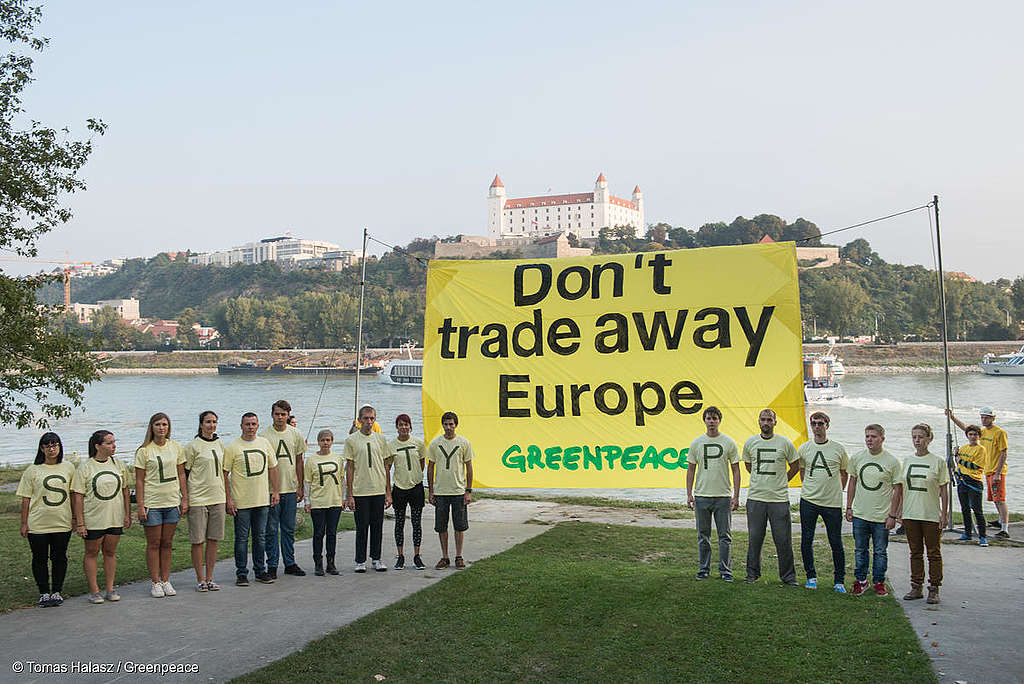The EU should dump its trade hypocrisy and start real cooperation on climate
The US has passed historic, albeit imperfect, climate legislation – the Inflation Reduction Act. But how do EU officials respond? “Nobody wants a subsidy war” said Margrethe Vestager. Talk about missing the wind farm for the turbines.
The EU has spent ages pushing the world’s biggest climate polluters to take responsibility for their role in the climate crisis and clean up their act. The first sign that the US is starting to turn the corner should have prompted congratulations, combined with a sense of friendly competition. Why doesn’t the EU try to transition to clean energy faster, and in an even fairer way?

Normally, trade agreements lead to lower standards, agreed behind closed doors without legislative oversight. But now there’s an opportunity for a healthy sort of cooperation – sharing best practices and know-how. No thousand-page contract with hidden corporate agendas necessary.
Reactions from EU officials could also be tempered with a bit of honest reflection. As they sniff about being left no choice but to also use state subsidies in order to compete, maybe they could spare a thought for West African dairy farmers, just one of many examples of those who have been unable to deal with unfair competition from EU-subsidised industries. All is fair in love and war, so long as the EU is the stronger player.
As we figure out the fastest and most socially just way to respond to the multiple crises we now face – climate, biodiversity, energy, you name it, let’s be honest about how we got here, and let’s be honest about what it will take to get us out of it. If the EU only follows the trade rules when it suits, maybe the EU should be re-examining those rules.
Take Germany and the EU right now – they are scrambling to see if they can find a workaround to WTO rules to enable local content requirements for subsidies for green technologies. They may also contend with potential WTO cases against the new EU deforestation law. It is absurd that progress to protect the environment and people’s rights could be held back by WTO rules.
Greenpeace has been saying for years that trade should be a means, not an end. If our collective goal is for clean energy sovereignty and security, and subsidies are an efficient way to reach that goal, then what are we waiting for? If we have to break WTO rules to do it, why not rethink those WTO rules? They were made by (powerful, neocolonialist) government officials; they can be changed too.
Of course, as we search for new rules that fit the challenge at hand, we must ensure that those the least responsible for the mess we are in now are not penalised for decades of insufficient climate action on the part of those who are most responsible. That means that a carbon border adjustment mechanism must include differentiated responsibilities for least developed countries based on historical emissions. And enough of giving dinosaur industries even more opportunities to avoid being part of the solution – no free carbon allowances for industry in addition to a border mechanism.
Instead of falling back on classic xenophobic tropes of blaming China, why not start taking responsibility for previous bad decisions, and start making good ones that prioritise improving people’s well-being over corporate profits. It is not about which country or bloc will win or lose a trade war, it is about our collective future on this planet.
